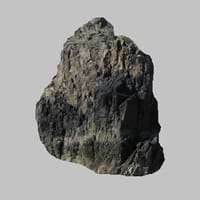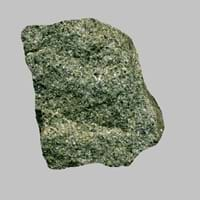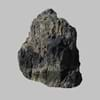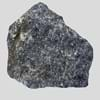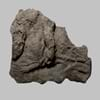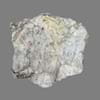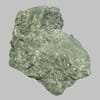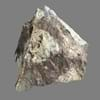Definition
Metapelite is an old and currently not widely used field geological term for a clay rich fine-grained clastic sediment or sedimentary rock, i.e. mud or a mudstone
Greywacke is defined as a dark coarse-grained sandstone rock which contains more than 15 per cent clay
Discoverer
Unknown
Unknown
Etymology
From Pelos or clay in Greek
From German Grauwacke, from grau grey + wacke
Class
Metamorphic Rocks
Sedimentary Rocks
Sub-Class
Durable Rock, Medium Hardness Rock
Durable Rock, Hard Rock
Group
Not Applicable
Not Applicable
Other Categories
Coarse Grained Rock, Fine Grained Rock, Medium Grained Rock, Opaque Rock
Fine Grained Rock, Opaque Rock
Color
Dark Greenish - Grey, Green, Light Green, Light Greenish Grey
Beige, Black, Brown, Colourless, Cream, Dark Brown, Green, Grey, Light Green, Light to Dark Grey, Pink, Red, White, Yellow
Durability
Durable
Durable
Scratch Resistant
Yes
Yes
Interior Uses
Decorative Aggregates, Interior Decoration
Decorative Aggregates, Floor Tiles, Flooring, Homes, Interior Decoration
Exterior Uses
As Building Stone, As Facing Stone
As Building Stone, As Facing Stone, Garden Decoration, Office Buildings, Paving Stone
Other Architectural Uses
Curbing
Curbing, Whetstones
Construction Industry
Cement Manufacture, Construction Aggregate, for Road Aggregate
Building houses or walls, Cement Manufacture, Construction Aggregate, for Road Aggregate, Raw material for the manufacture of mortar
Medical Industry
Not Yet Used
Not Yet Used
Antiquity Uses
Artifacts
Artifacts, Sculpture, Small Figurines
Commercial Uses
Commemorative Tablets, Creating Artwork
As armour rock for sea walls, Petroleum reservoirs, Sea Defence, Tombstones
Types
Not Available
Not Available
Features
Easily splits into thin plates, It is One of the Oldest, Strongest and Hardest Rock
Available in Lots of Colors and Patterns, Generally rough to touch, Non-vesicular, Veined
Archaeological Significance
Monuments
Not Yet Used
Not Yet Used
Famous Monuments
Not Applicable
Not Applicable
Sculpture
Not Yet Used
Used
Famous Sculptures
Not Applicable
Data Not Available
Pictographs
Used
Not Used
Petroglyphs
Used
Not Used
Figurines
Not Yet Used
Used
Formation
Due to change in environmental conditions, rocks are heated and pressurized deep inside the Earth's surface. Metapelite is formed from the extreme heat caused by magma or by the intense collisions and friction of tectonic plates.
Graywacke rock is a type of sedimentary rock, which is also known as immature sandstone, which is indurated, dark grey and consisting of poorly sorted angular to sub-angular, sand-sized grains.
Mineral Content
Albite, Chlorite, Quartz
Augite, Biotite, Calcite, Chlorite, Clay, Clay Minerals, Feldspar, Micas, Muscovite or Illite, Plagioclase, Pyroxene, Quartz
Compound Content
Aluminium Oxide, CaO, MgO
Aluminium Oxide, NaCl, CaO, Chromium(III) Oxide, Iron(III) Oxide, FeO, Potassium Oxide, Magnesium Carbonate, MgO, MnO, Sodium Oxide, Phosphorus Pentoxide, Silicon Dioxide, Titanium Dioxide
Types of Metamorphism
Not Applicable
Not Applicable
Types of Weathering
Biological Weathering, Chemical Weathering, Mechanical Weathering
Biological Weathering, Chemical Weathering
Types of Erosion
Chemical Erosion, Coastal Erosion, Water Erosion, Wind Erosion
Coastal Erosion, Sea Erosion, Wind Erosion
Grain Size
Medium to Fine Coarse Grained
Angular and Fine
Fracture
Fibrous
Conchoidal
Porosity
Highly Porous
Highly Porous
Cleavage
Not Available
Perfect
Toughness
Not Available
2.6
Specific Gravity
3.4-3.7
2.2-2.8
Transparency
Opaque
Opaque
Density
0-300 g/cm3
2.6-2.61 g/cm3
Specific Heat Capacity
Not Available
Resistance
Heat Resistant, Impact Resistant, Pressure Resistant
Heat Resistant, Impact Resistant, Pressure Resistant
Deposits in Eastern Continents
Asia
Not Yet Found
China, India, Kazakhstan, Mongolia, Russia, Uzbekistan
Africa
Western Africa
Namibia, Nigeria, South Africa
Europe
United Kingdom
Austria, Denmark, Germany, Great Britain, Netherlands, Norway, Poland, Sweden, Switzerland, United Kingdom
Others
Not Yet Found
Greenland
Deposits in Western Continents
North America
Not Available
Canada, USA
South America
Brazil, Colombia, Ecuador
Brazil
Deposits in Oceania Continent
Australia
Central Australia, Western Australia
New South Wales, New Zealand
All about Metapelite and Greywacke Properties
Know all about Metapelite and Greywacke properties here. All properties of rocks are important as they define the type of rock and its application. Metapelite belongs to Metamorphic Rocks while Greywacke belongs to Sedimentary Rocks.Texture of Metapelite is Foliated whereas that of Greywacke is Clastic. Metapelite appears Banded and Greywacke appears Dull. The luster of Metapelite is earthy while that of Greywacke is dull. Metapelite is available in dark greenish - grey, green, light green, light greenish grey colors whereas Greywacke is available in beige, black, brown, colourless, cream, dark brown, green, grey, light green, light to dark grey, pink, red, white, yellow colors. The commercial uses of Metapelite are commemorative tablets, creating artwork and that of Greywacke are as armour rock for sea walls, petroleum reservoirs, sea defence, tombstones.
